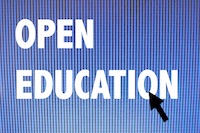A Framework for the Ethics of Open Education
 What difference does openness make to the ethics of teaching and research? This paper approaches this question both from the perspective of research into the use of open educational resources (OER) in teaching and learning. An outline of the nature and importance of ethics in education research is provided before the basic principles of research ethics are examined through a discussion of traditional guidance provided by three UK research governance bodies: the Economics and Social Research Council; the British Education Research Association; and the British Psychological Society. The importance and foundation of institutional approval for research activities is analysed with several examples of the differences made by openness. It is argued that openness by its nature provokes particular issues for education researchers. A framework for understanding openness in education is then proposed based on basic meta-ethical positions (deontological; consequentialist; virtue). Used as a tool, the framework attempts to retain relevance in a variety of scenarios without requiring a dogmatic vision of openness (e.g. an insistence on open licensing). This framework is then evaluated in the context of the OER Research Hub project, which developed guidance for others in the form of an ‘ethics manual’ and online learning provided through the OER Research Hub’s ‘Open Research’ course hosted on P2PU’s School of Open. Use of the framework is intended to contribute to a better understanding of professional ethics for open practitioners.
What difference does openness make to the ethics of teaching and research? This paper approaches this question both from the perspective of research into the use of open educational resources (OER) in teaching and learning. An outline of the nature and importance of ethics in education research is provided before the basic principles of research ethics are examined through a discussion of traditional guidance provided by three UK research governance bodies: the Economics and Social Research Council; the British Education Research Association; and the British Psychological Society. The importance and foundation of institutional approval for research activities is analysed with several examples of the differences made by openness. It is argued that openness by its nature provokes particular issues for education researchers. A framework for understanding openness in education is then proposed based on basic meta-ethical positions (deontological; consequentialist; virtue). Used as a tool, the framework attempts to retain relevance in a variety of scenarios without requiring a dogmatic vision of openness (e.g. an insistence on open licensing). This framework is then evaluated in the context of the OER Research Hub project, which developed guidance for others in the form of an ‘ethics manual’ and online learning provided through the OER Research Hub’s ‘Open Research’ course hosted on P2PU’s School of Open. Use of the framework is intended to contribute to a better understanding of professional ethics for open practitioners.







